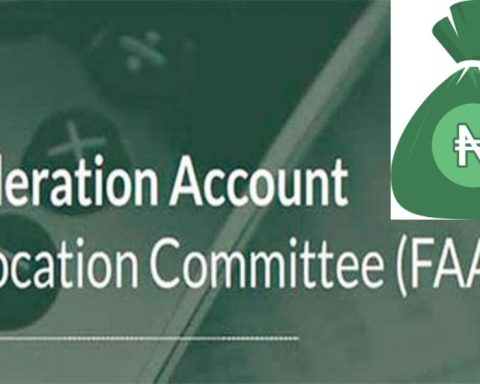FAAC Distributes Over N1.3 Trillion
The Federation Accounts Allocation Committee (FAAC) has announced the distribution of N1.358 trillion among the Federal Government, state governments, and Local Government Councils (LGCs) for July 2024.
This was disclosed in a communiqué following the FAAC meeting held in Abuja in August.
Join our WhatsApp ChannelThe total distributable funds, amounting to N1.358 trillion, include statutory revenue of N161.593 billion, as well as Value Added Tax (VAT) revenue, Electronic Money Transfer Levy (EMTL), and revenue from Exchange Difference and Solid Minerals.
The communiqué noted that the revenue for July reflected a robust collection across various streams, signaling a stable financial outlook.
Breakdown of the FAAC Allocation
The FAAC communiqué highlighted that the gross statutory revenue collected in July was N1.387 trillion, slightly lower than June’s N1.432 trillion.
Despite this, the gross VAT revenue for July was N625.329 billion, showing a notable increase from June’s N562.685 billion.
Out of the N1.358 trillion total distributable revenue, the Federal Government received N431.079 billion, while the state governments were allocated N473.477 billion.
READ ALSO: How FX Gain Now Major Source Of FAAC Revenue – Report
Local Government Councils (LGCs) were given N343.703 billion, and N109.816 billion, representing 13 percent of mineral revenue, was distributed as derivation revenue to eligible states.
For the N161.593 billion in statutory revenue, the Federal Government’s share was N58.545 billion, and state governments received N29.695 billion.
LGCs were allocated N22.894 billion, while N50.459 billion was distributed to eligible states as derivation revenue.
Other Revenue Sources in FAAC Allocation
In addition to the statutory revenue and VAT, the communiqué mentioned that revenues from Oil and Gas Royalty, Petroleum Profit Tax (PPT), and other streams such as Import Duty and the Common External Tariff (CET) Levies contributed to the total allocation.
The increased collection in these areas is seen as a positive indicator of the country’s economic activities.
According to the communiqué, “This allocation reflects the government’s commitment to ensuring equitable resource distribution among the various levels of government, which is crucial for sustaining public services across the country.”
The report further noted that the N2.613 trillion total revenue available for distribution in July included transfers, interventions, and refunds amounting to N1.155 trillion. Deductions for the cost of collection were N99.756 billion.
Impact of FAAC Allocations on Economic Growth
The FAAC’s allocation process is a key mechanism in the Nigerian federal system, ensuring that all levels of government have access to the necessary funds to carry out their functions.
With the increase in various revenue streams, there is optimism about the continued growth of Nigeria’s economy.
Speaking on the revenue distribution, an FAAC official said, “The improved revenue performance in July, especially in VAT and mineral revenues, demonstrates the ongoing efforts to enhance the country’s revenue base.”
As Nigeria continues to navigate its economic challenges, the FAAC allocations remain a critical tool in supporting the financial needs of the government at all levels.















